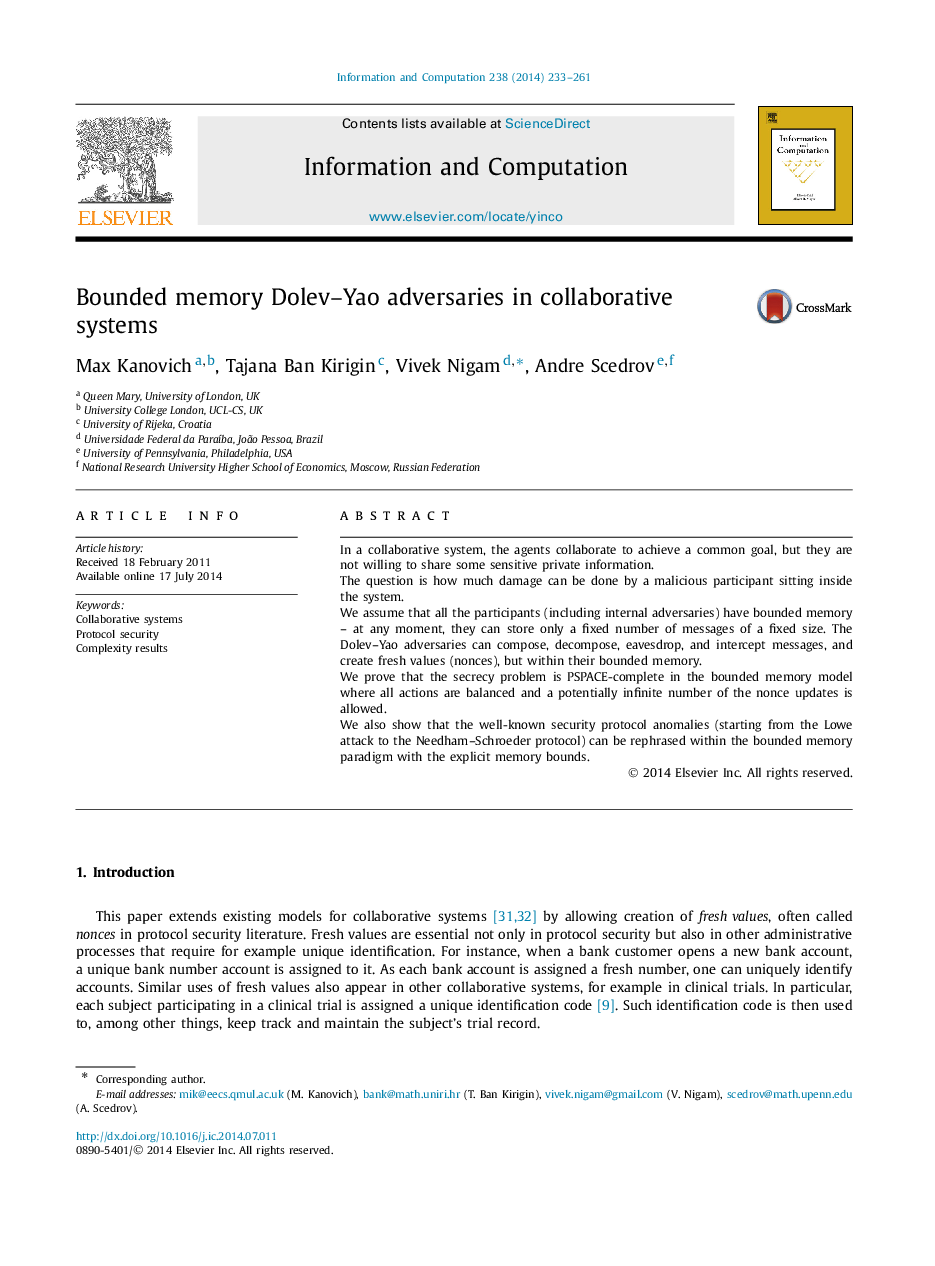| Article ID | Journal | Published Year | Pages | File Type |
|---|---|---|---|---|
| 426992 | Information and Computation | 2014 | 29 Pages |
In a collaborative system, the agents collaborate to achieve a common goal, but they are not willing to share some sensitive private information.The question is how much damage can be done by a malicious participant sitting inside the system.We assume that all the participants (including internal adversaries) have bounded memory – at any moment, they can store only a fixed number of messages of a fixed size. The Dolev–Yao adversaries can compose, decompose, eavesdrop, and intercept messages, and create fresh values (nonces), but within their bounded memory.We prove that the secrecy problem is PSPACE-complete in the bounded memory model where all actions are balanced and a potentially infinite number of the nonce updates is allowed.We also show that the well-known security protocol anomalies (starting from the Lowe attack to the Needham–Schroeder protocol) can be rephrased within the bounded memory paradigm with the explicit memory bounds.
